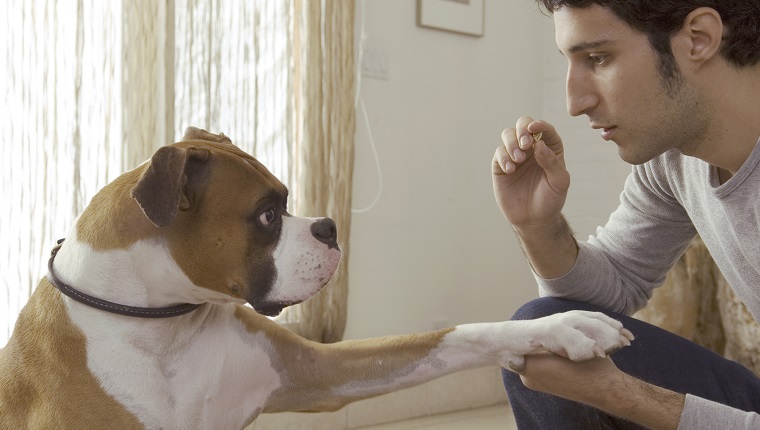Picking your pooch’s name is probably one of the first things you’d do as a pet parent. Over time, it’s easy to give additional nicknames, adding “boo” or “patootie” or other cutesy titles. After all, it’s hard not to give your baby a cute nickname, right?
However, new research suggests that you may need to frequently use their chosen name when training your dog. Pups can distinguish their names in a fairly noisy environment.
What’s more, they even respond when called by a stranger, making it the perfect training for service and therapy dogs who must respond when called by someone other than their trainer.
Here’s why you should use your dog’s real name in training sessions and leave the cute nicknames for cuddle sessions.
When You Call, Your Dog Answers

Researchers and scientists from the University of Maryland found that dogs can filter out their names from a noisy crowd. They can do so either when the name is spoken louder or on the same level as the background noise.
This reflects the same experience people have with selective attention, more familiarly known as the “cocktail party effect.” This psychological phenomenon pertains to the brain’s focus on a particular auditory source while filtering out other sounds.
Researchers recorded this interesting effect in a lab experiment, wherein dogs listened to two speakers who said either their given name or a name with similar syllables. Scientists paired the vocalizations with background noise, delivered in three levels of increasing volume.
Findings showed that the dogs filtered through the noise to listen. They also turned their attention to the speaker who said their own name. This happened when the noise was softer or on the same level as the name calling.
Using Names Helps With Service Dog Training Too
Most trainers use a service dog’s name consistently through training. This may be why they respond more — and better — than non-service dogs trained by their human parents. “We often end up using nicknames so much,” said Rochelle Newman, co-author of the research.
Therapy dogs also benefit from this because they encounter new faces and voices. As the study proved, dogs respond to strangers calling their names, regardless of ownership.
That’s why it’s important to get dogs’ attention; it’s one of the main principles of positive reinforcement training.
When training, you should know how to spot an attentive dog. They will follow you closely and try to get your attention. They can also do this more discreetly; the goal is to make sure your dog is aware of your movements.
The next time you’re looking to train your dog, keep two things in mind. First, be consistent with how you call them to get them used to it. Second, gain their attention, not through fear or obligation, but with positive love and awareness.
These tips could help you better train your dog, whether they’re a service dog or loving pet.
Do you stick to using your dog’s real name during training? Do you find your dog is more attentive when you don’t use a nickname? Let us know in the comments below!
Related Articles:









